Looking to ditch dairy without sacrificing flavor or nutrition? These 15 dairy alternatives are so delicious, you might forget all about the milk aisle. Whether you’re vegan, lactose-intolerant, or just curious, these options have you covered with taste and benefits that are udderly irresistible!
Contents
- 1 Almond Milk
- 2 Oat Milk
- 3 Coconut Milk
- 4 Soy Milk
- 5 Cashew Milk
- 6 Rice Milk
- 7 Hemp Milk
- 8 Pea Milk
- 9 Macadamia Milk
- 10 Flax Milk
- 11 Hazelnut Milk
- 12 Quinoa Milk
- 13 Pistachio Milk
- 14 Tiger Nut Milk
- 15 Walnut Milk
- 16 More From RetailShout
- 17 15 Foods to Avoid for Improved Kidney Function
- 18 20 Unforgettable Salad Recipes You’ve Never Tried
Almond Milk
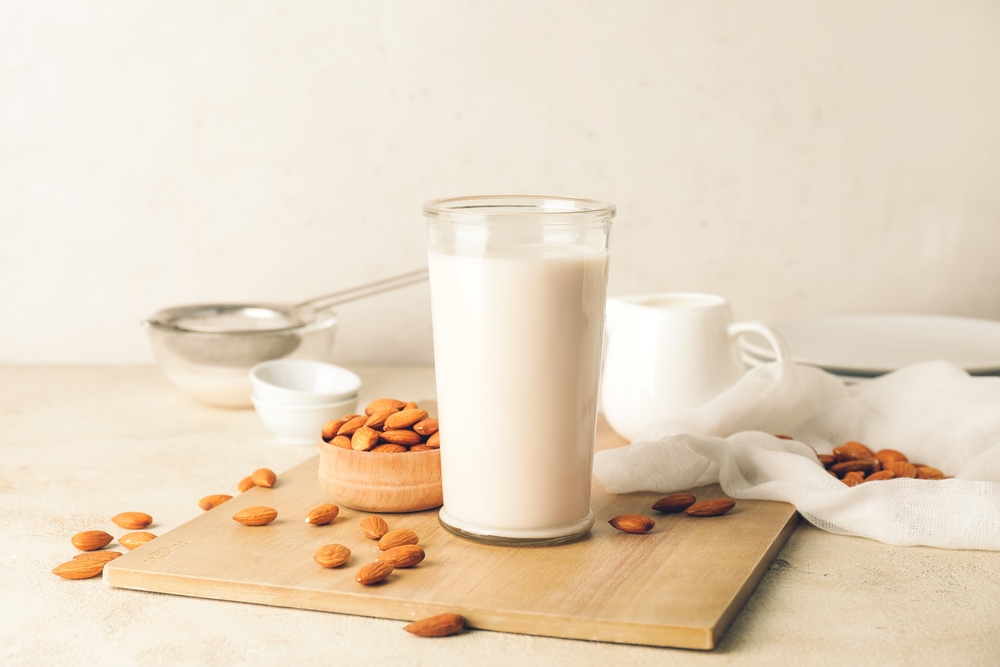
Almond milk has become a staple for many looking to replace cow’s milk. It has a mild, slightly nutty flavor and works well in smoothies, cereals, and baked goods. Almond milk is often fortified with calcium, vitamin D, and vitamin E, making it nutritionally beneficial. While it is low in protein, it is also lower in calories than regular milk. Some brands offer unsweetened varieties, giving you flexibility depending on your dietary goals.
Oat Milk
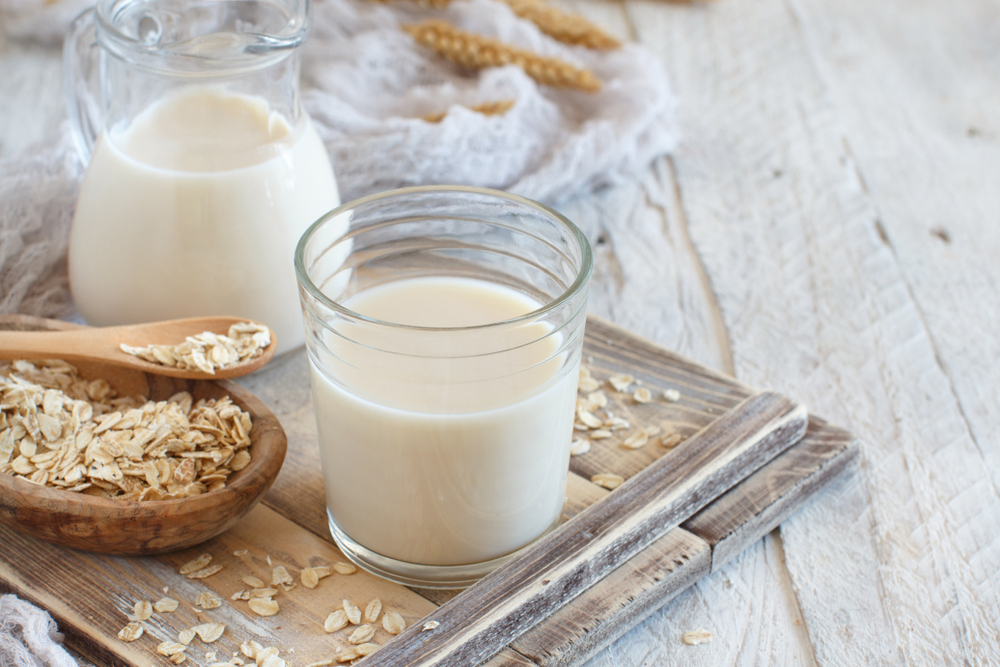
Oat milk is a creamy and satisfying option that has gained popularity due to its rich texture and neutral flavor. It’s often enriched with vitamins like B12 and D, as well as calcium, making it a solid alternative for those looking to maintain bone health. Oat milk is higher in carbohydrates than other alternatives, but it’s great for adding thickness to lattes, smoothies, and sauces. It’s also naturally sweet, meaning you may not need additional sweeteners in your recipes. Plus, it’s eco-friendly, as oats require less water to grow compared to nuts.
Coconut Milk
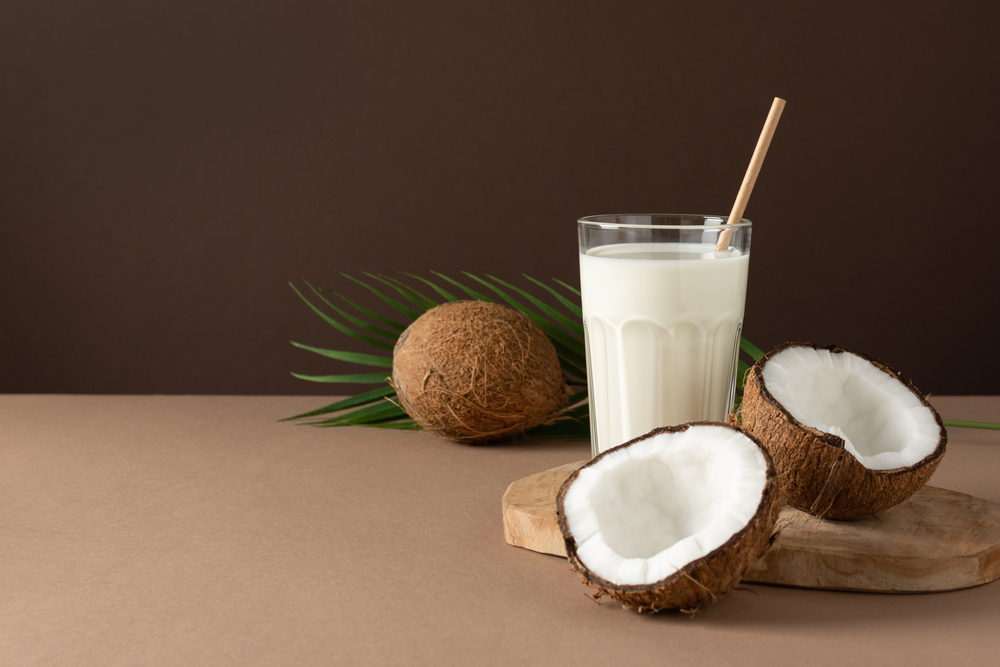
Coconut milk, particularly the kind found in cartons, is a popular choice for those seeking a slightly tropical flavor. It’s naturally high in healthy fats, especially medium-chain triglycerides (MCTs), which can provide quick energy. While coconut milk doesn’t offer much protein, its fat content makes it satiating, and it’s often fortified with calcium and vitamin D. Its creamy texture makes it ideal for curries, soups, and dairy-free desserts. However, coconut milk from a can is thicker and often used for cooking rather than drinking.
Soy Milk
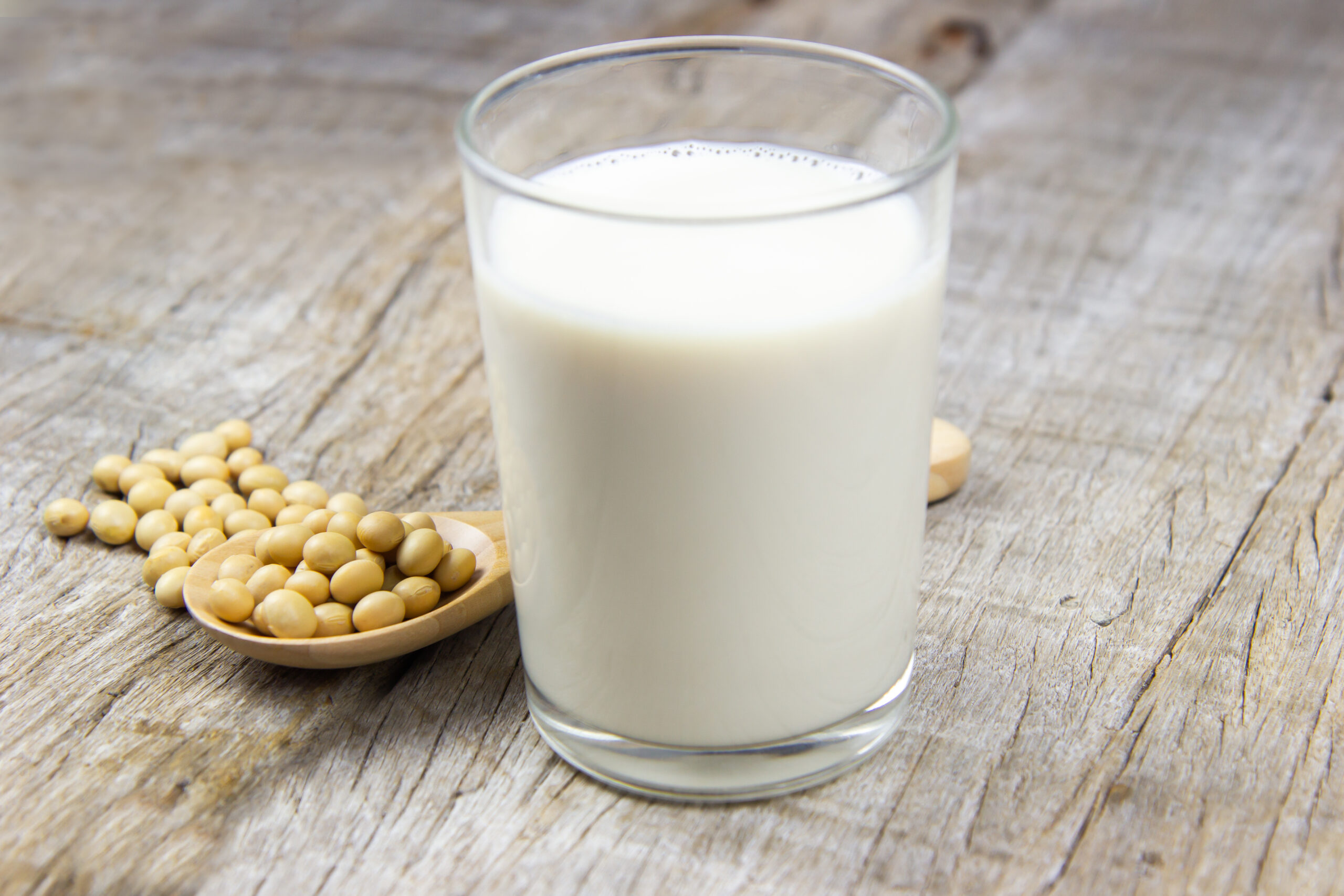
Soy milk is one of the most nutritionally similar alternatives to cow’s milk. It contains a comparable amount of protein per serving, around 7-8 grams, making it an excellent choice for people needing more protein in their diet. Soy milk is often fortified with calcium and vitamins A and D, and it’s available in a variety of flavors, from sweetened to unsweetened versions. The taste can be slightly bean-like, but it blends well in coffee, smoothies, and baked goods. Some studies also suggest soy may help improve heart health by lowering cholesterol levels.
Cashew Milk
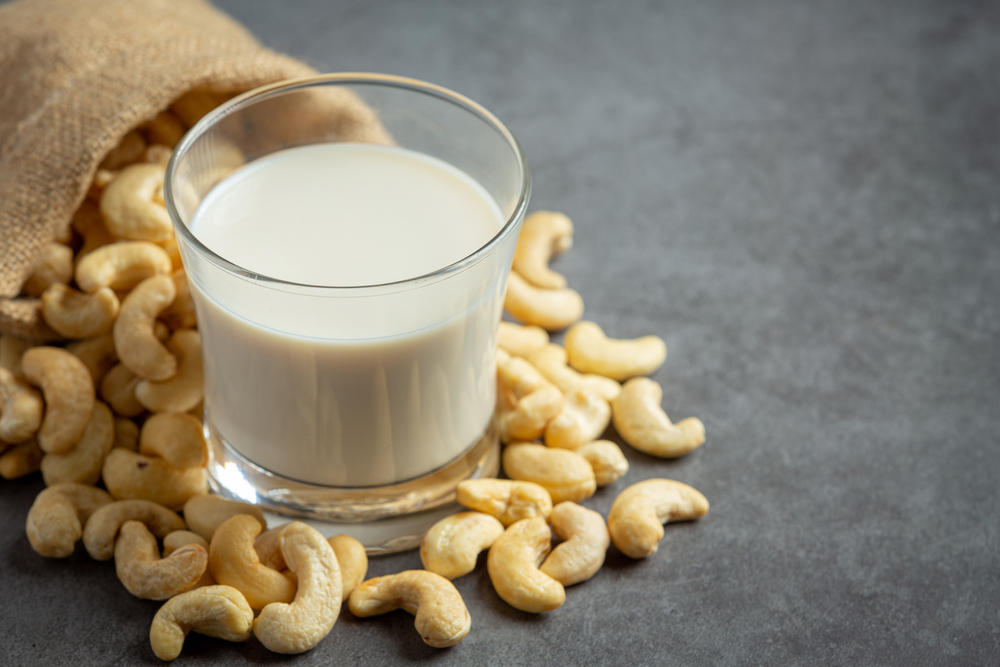
Cashew milk is known for its creamy and buttery texture, making it an excellent choice for those who prefer a richer flavor. It’s low in calories and fat, particularly the unsweetened versions, but lacks significant protein. However, it’s often fortified with essential vitamins and minerals like calcium, vitamin D, and vitamin B12. Cashew milk blends smoothly in sauces, soups, and coffee, providing a dairy-free alternative with a velvety consistency. It’s also a fantastic base for vegan cheese sauces and ice cream.
Rice Milk
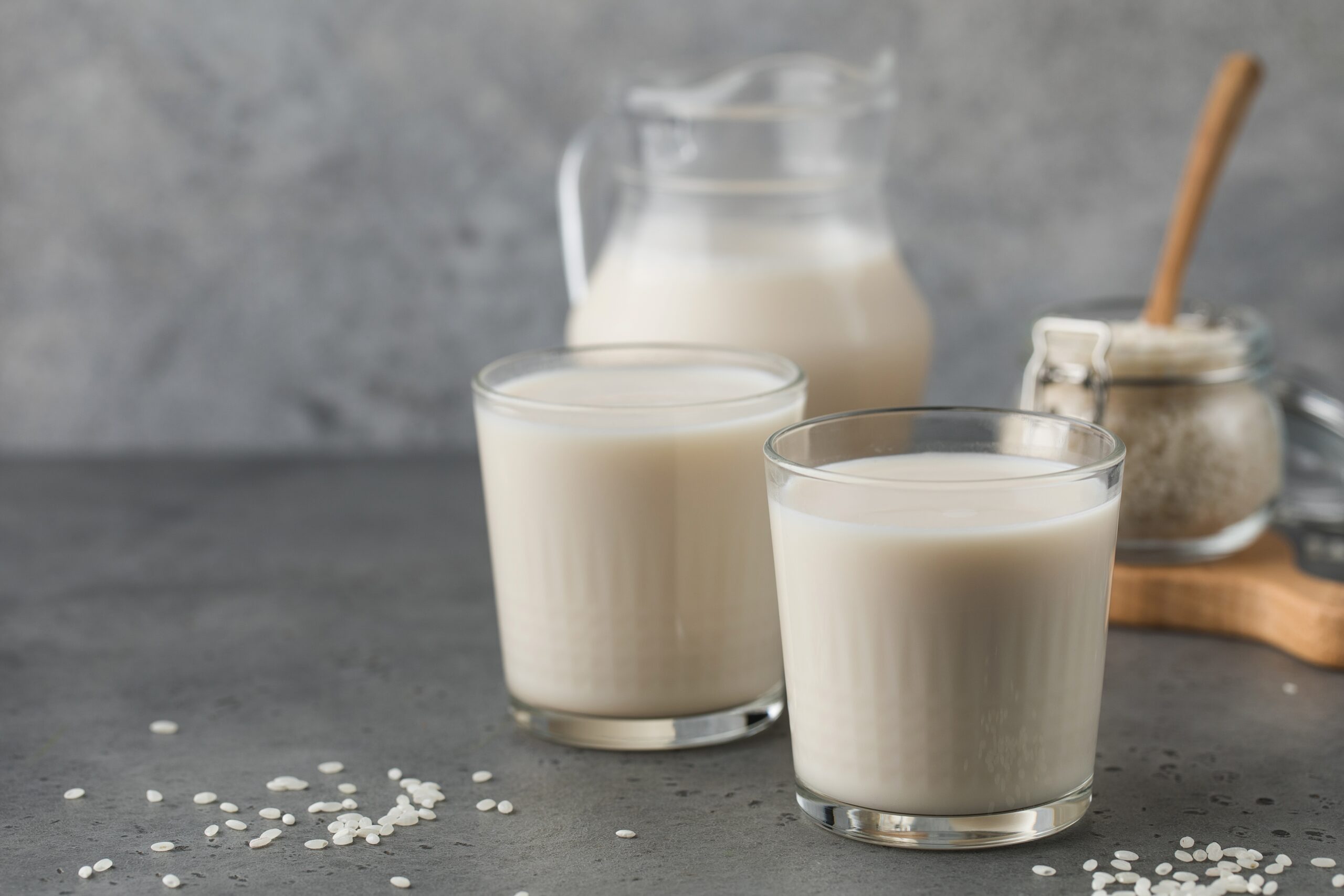
Rice milk is one of the most allergy-friendly alternatives as it’s free from dairy, soy, and nuts. It has a thin consistency and a naturally sweet taste, making it suitable for cereals and smoothies. Rice milk is often enriched with calcium, vitamin D, and B12, providing nutritional support for those with restricted diets. While it’s lower in protein and fat, it can be a good option for people needing a low-fat, allergen-free alternative. The high carbohydrate content makes it less suitable for people watching their sugar intake, but it can still be enjoyed in moderation.
Hemp Milk

Hemp milk is a fantastic source of omega-3 and omega-6 fatty acids, which are beneficial for heart health. It has a slightly earthy, nutty flavor and a creamy texture that works well in smoothies, cereals, and coffee. Hemp milk is typically fortified with calcium, vitamin D, and vitamin B12, ensuring it offers essential nutrients for bone health. Unlike some other alternatives, hemp milk contains protein—about 3 grams per cup—making it a more balanced option. Its unique nutritional profile also supports skin health due to its high content of healthy fats.
Pea Milk
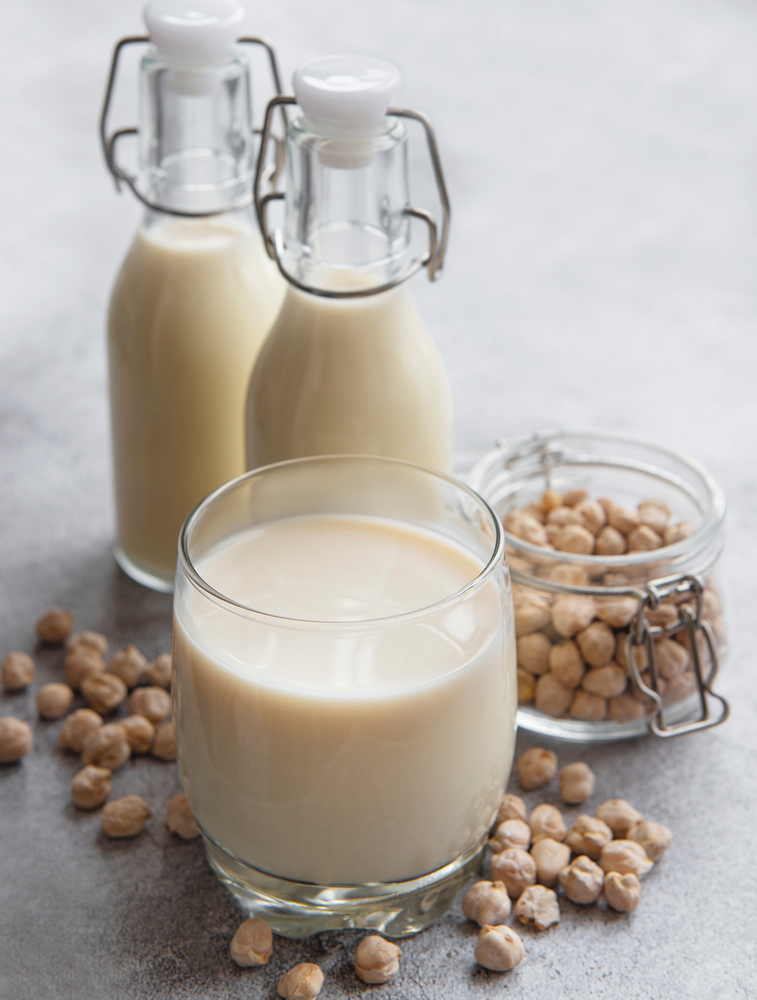
Pea milk, made from yellow peas, is a newer alternative gaining attention for its high protein content. It offers about 8 grams of protein per serving, similar to soy milk, making it ideal for those looking to increase their protein intake. Pea milk is typically fortified with calcium, vitamin D, and iron, making it nutritionally comparable to cow’s milk. It has a neutral flavor that blends well in savory and sweet dishes. Its creamy consistency makes it a popular choice for adding to coffee or using in cooking.
Macadamia Milk
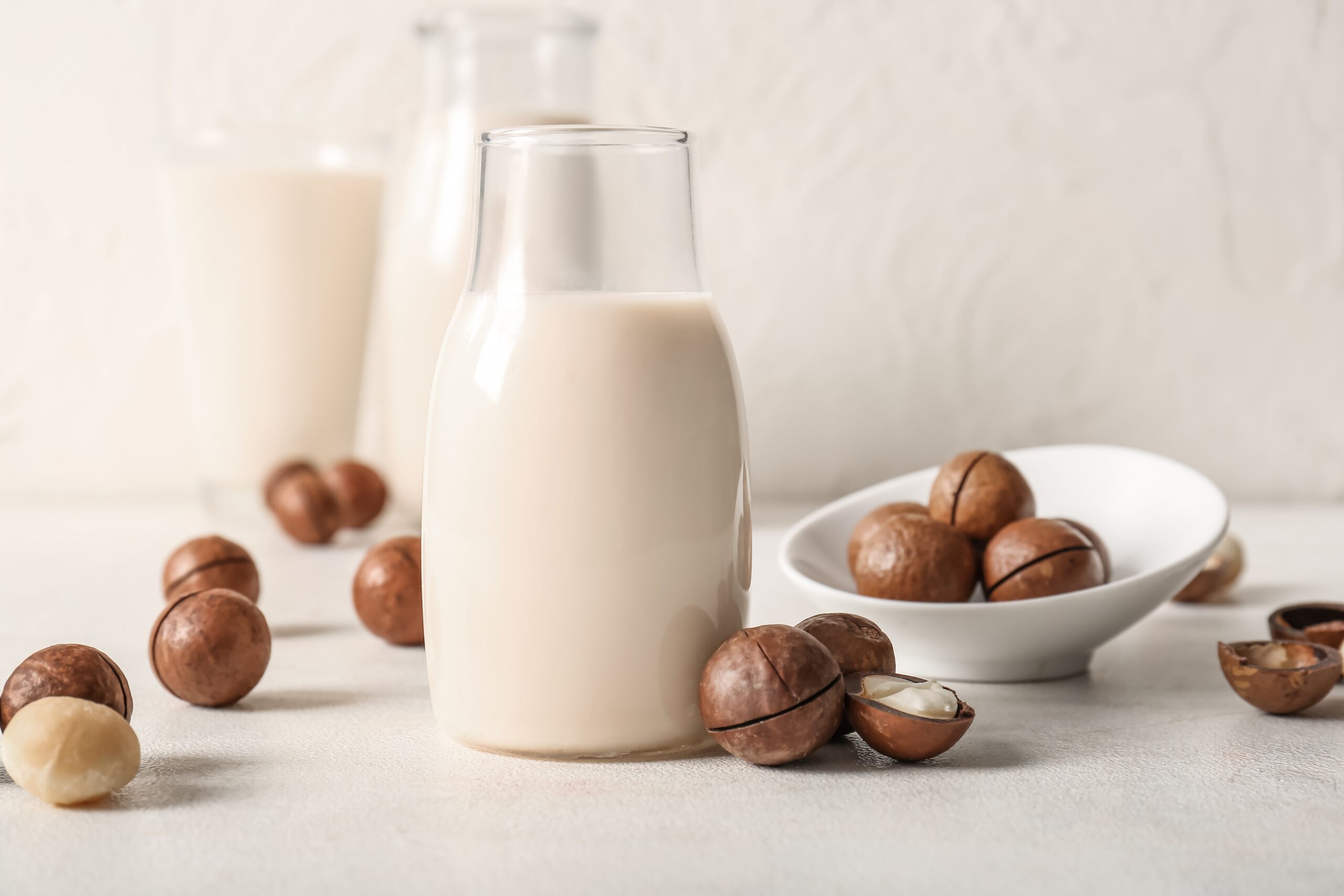
Macadamia milk is a luxurious and creamy dairy alternative with a slightly nutty flavor. It’s lower in calories compared to traditional dairy, and it’s often fortified with essential nutrients like calcium and vitamin D. While it’s not particularly high in protein, it contains healthy fats that contribute to heart health. Macadamia milk’s creamy texture makes it perfect for lattes, smoothies, and desserts. It’s also a sustainable choice as macadamia nuts require less water to grow than other nut varieties.
Flax Milk
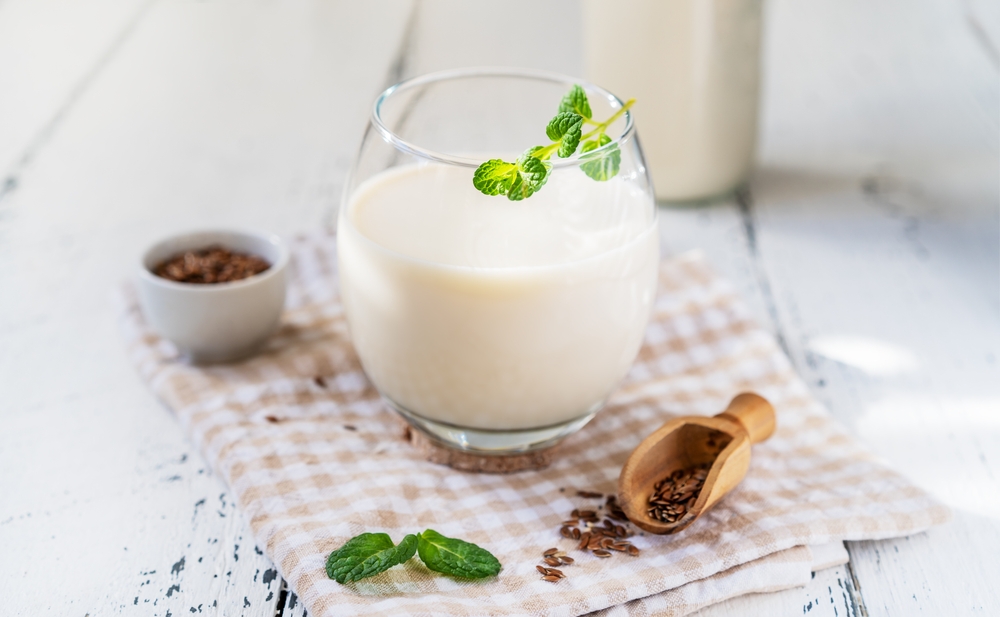
Flax milk is another dairy alternative rich in omega-3 fatty acids, which can help support heart health and reduce inflammation. It has a light and smooth texture with a mild, neutral flavor, making it suitable for a variety of uses, from drinking to cooking. Flax milk is typically fortified with calcium, vitamin D, and B12, ensuring it meets your daily nutritional needs. Although it’s low in protein, it’s a low-calorie option for those watching their intake. The high omega-3 content also makes it a good choice for boosting your daily intake of healthy fats.
Hazelnut Milk
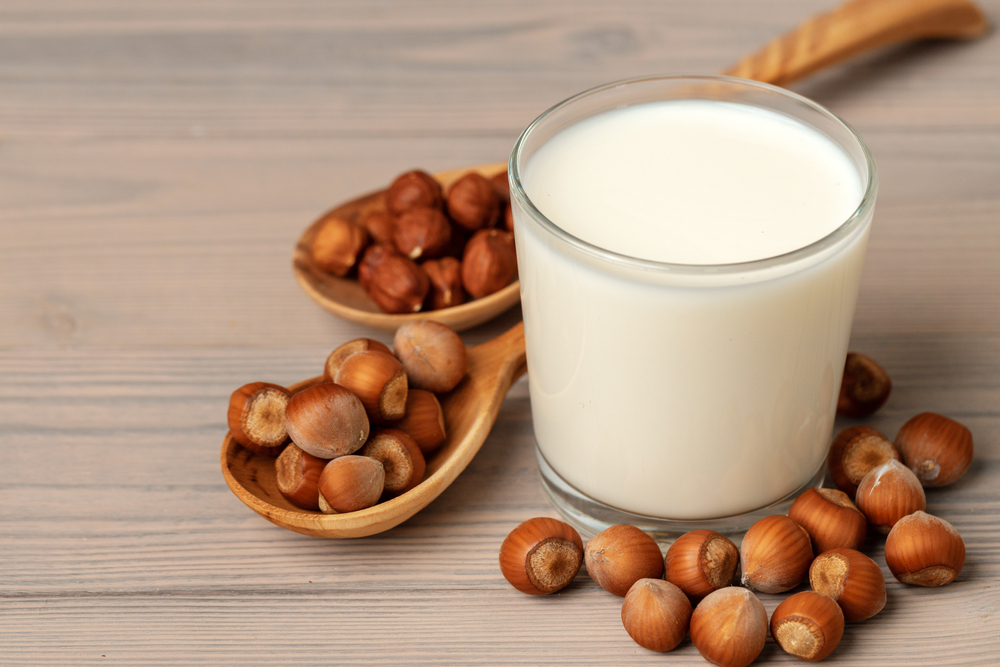
Hazelnut milk offers a rich, nutty flavor that stands out in coffee, hot chocolate, and smoothies. It’s lower in protein compared to other options, but it’s often fortified with essential nutrients like calcium and vitamin D. Hazelnut milk is a good source of healthy fats, which can support heart health. The creamy texture and distinct flavor make it a great choice for dairy-free desserts and beverages. It pairs especially well with chocolate, making it a delicious addition to your morning coffee or hot cocoa.
Quinoa Milk
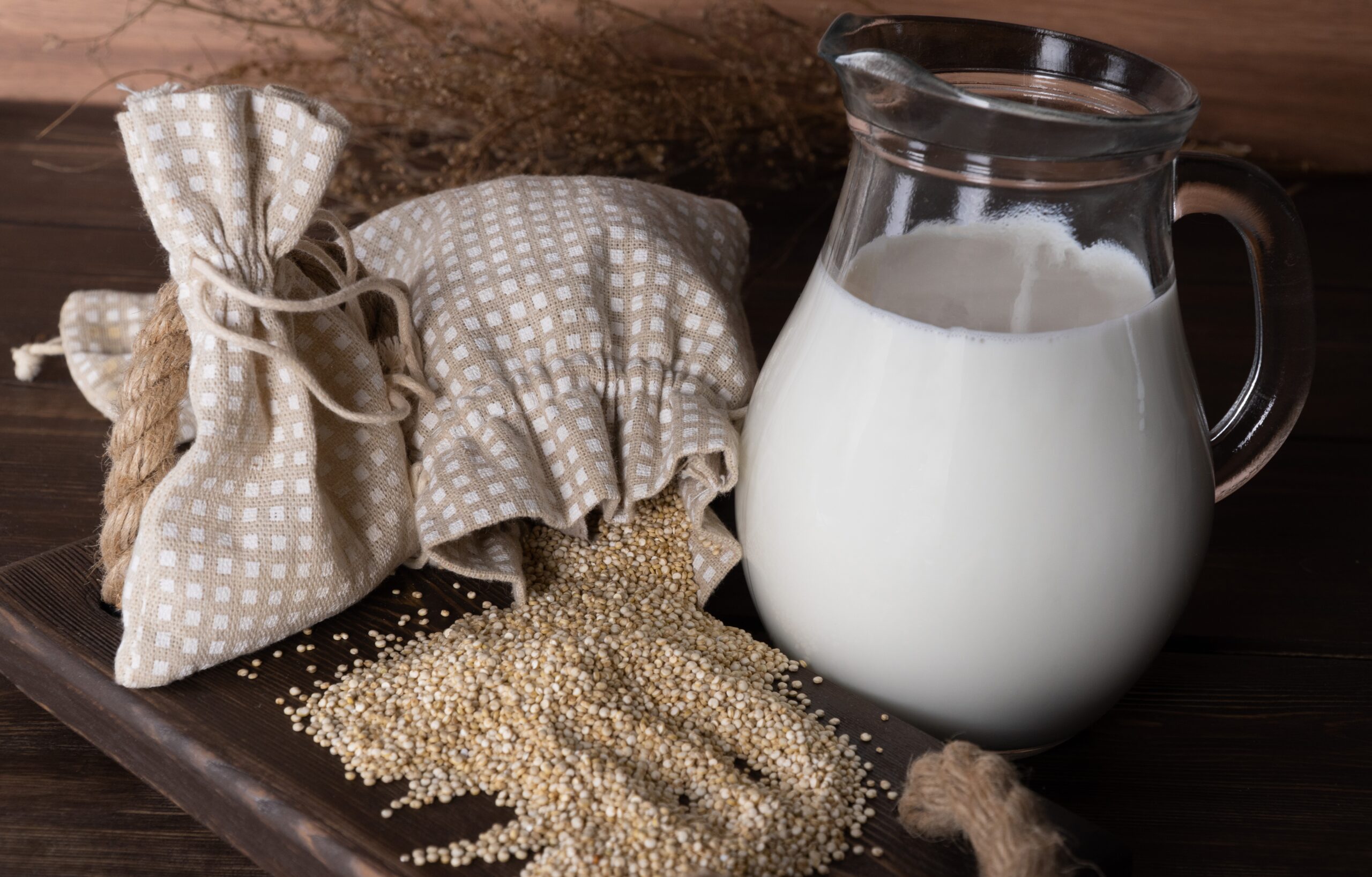
Quinoa milk is a lesser-known but nutritious alternative to dairy, offering a good source of protein, fiber, and essential amino acids. Its slightly nutty and earthy flavor complements both sweet and savory dishes, making it versatile for cooking and baking. Quinoa milk is often fortified with calcium and vitamin D, contributing to bone health. While it can be a bit more expensive, it’s a great choice for those seeking a more balanced and protein-rich option. Its high nutrient density makes it ideal for adding to smoothies, cereal, and even baking recipes.
Pistachio Milk
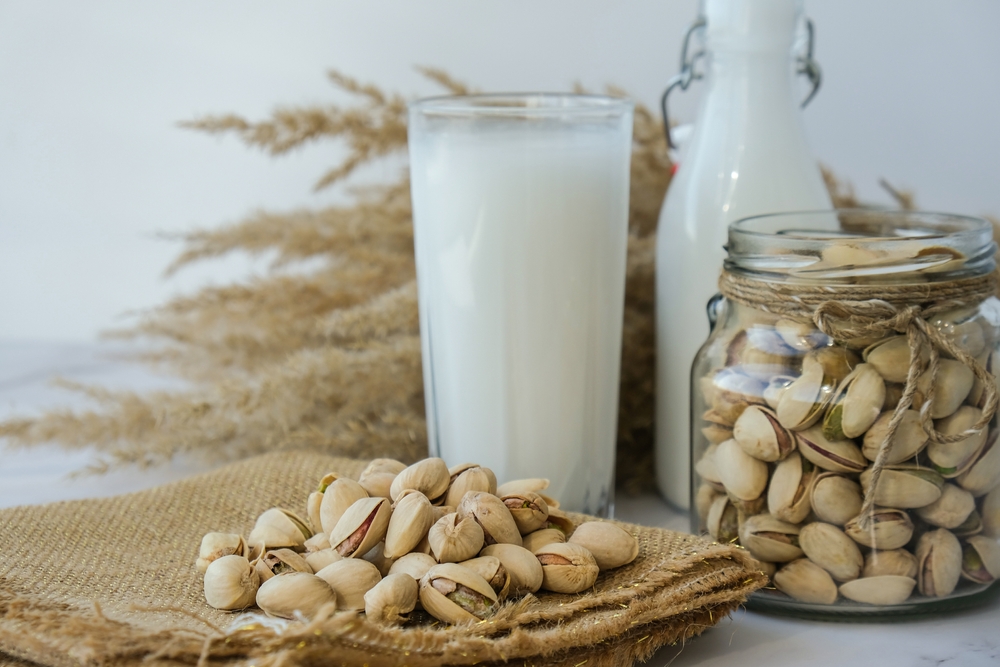
Pistachio milk is a creamy and subtly sweet dairy alternative that has started gaining popularity. It’s high in antioxidants, particularly vitamin E, which supports skin health. Pistachio milk is often fortified with calcium and vitamin D, providing essential nutrients for bone strength. While it’s lower in protein than soy or pea milk, its unique flavor makes it an exciting option for adding to coffee, tea, or desserts. The healthy fats in pistachios also contribute to heart health, making this a nutritious and flavorful choice.
Tiger Nut Milk
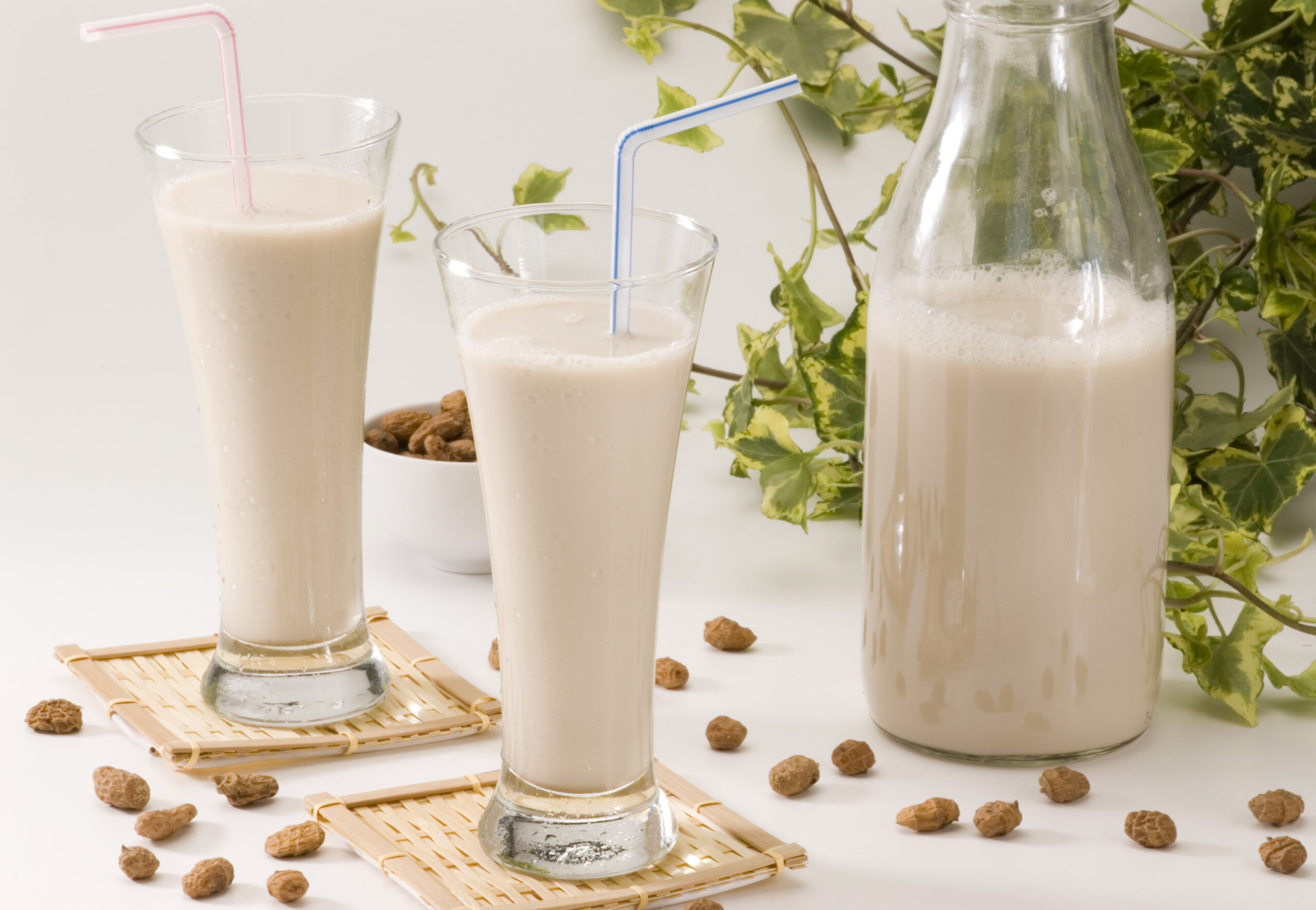
Despite its name, tiger nut milk is made from tubers, not nuts, making it an excellent option for those with nut allergies. It’s naturally sweet and creamy, with a flavor that complements cereals, coffee, and smoothies. Tiger nut milk is rich in fiber, helping support digestive health, and is often fortified with calcium and vitamin D. While it doesn’t contain much protein, it’s a good source of healthy fats and antioxidants. Its unique taste and nutritional benefits make it an intriguing dairy-free option for those looking to try something new.
Walnut Milk
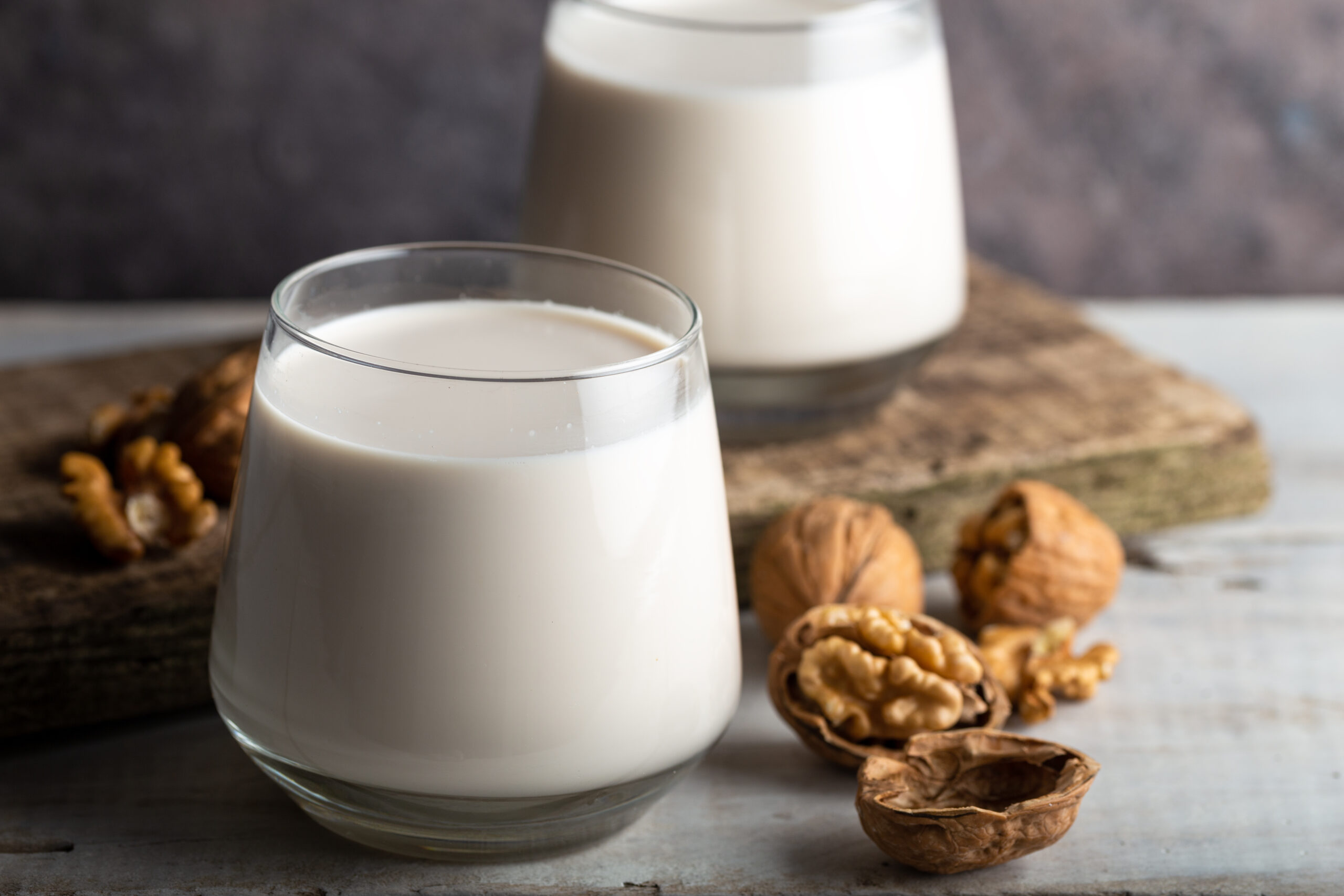
Walnut milk is packed with heart-healthy omega-3 fatty acids and has a robust, nutty flavor. It’s typically fortified with calcium, vitamin D, and vitamin B12, making it nutritionally comparable to other dairy alternatives. While it’s lower in protein than some other options, walnut milk’s high antioxidant content makes it a beneficial choice for reducing inflammation. Its rich flavor works well in coffee, smoothies, and dairy-free desserts. Walnut milk’s combination of healthy fats and antioxidants offers a nutritious and delicious option for those looking to diversify their dairy-free choices.
This article originally appeared on RetailShout.
More From RetailShout
20 Best Aldi Products for a Cozy Weekend Brunch

When the weekend rolls around, there’s no better way to start your day than with a cozy brunch. Aldi’s incredible selection of affordable and high-quality products makes it easy to whip up a delicious meal that everyone will love. Read More.
15 Foods to Avoid for Improved Kidney Function

Maintaining healthy kidneys is crucial for overall well-being. The foods we eat play a significant role in kidney health. By avoiding certain foods, we can help our kidneys function more effectively. Read More.
20 Unforgettable Salad Recipes You’ve Never Tried
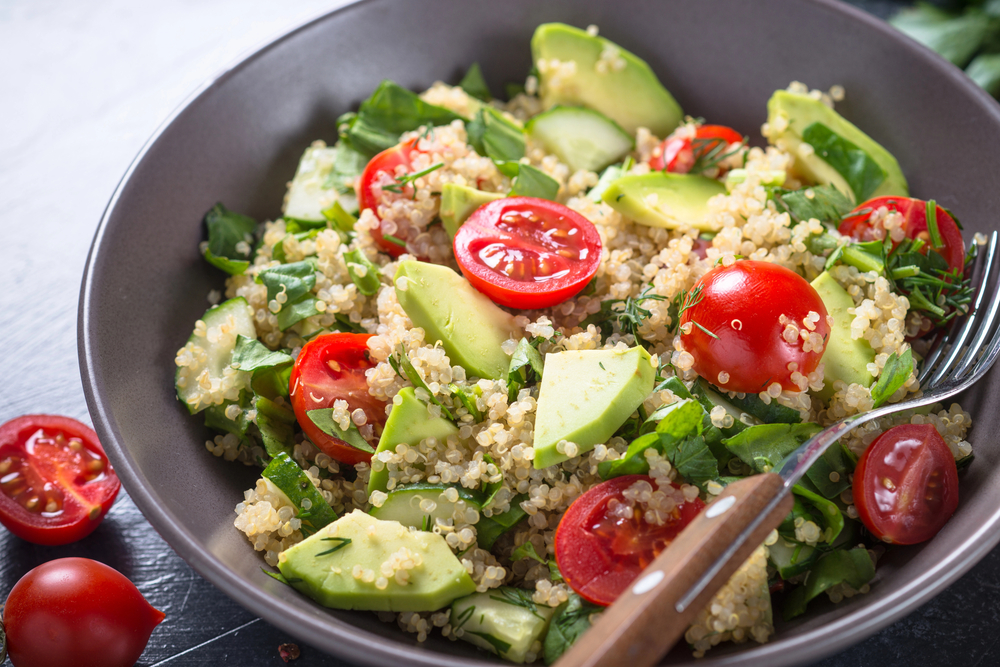
Are you tired of the same old salads? It’s time to shake things up with some unique and exciting recipes. From fruity blends to savory delights, these salads are anything but ordinary. Read More.






